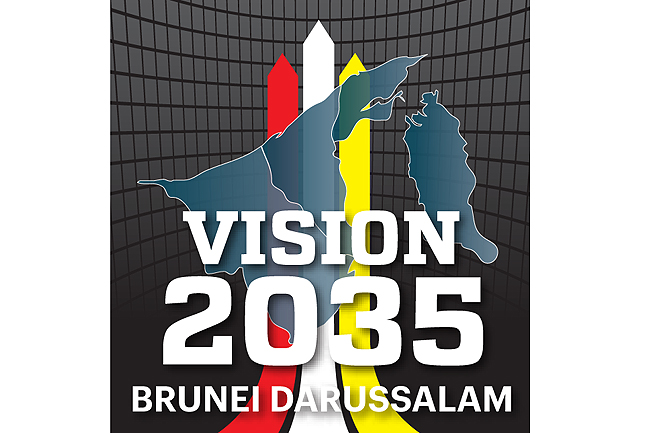Various studies give Brunei thumbs up
VARIOUS studies and statistics covering a range of fields involving Brunei Darussalam were released in July.
One such study is the Henley Passport Index – an annual ranking of the most powerful passport in the world, officially released in real-time each quarter. According to the Index, Brunei’s passport is ranked among the top three most powerful in Southeast Asia along with Singapore and Malaysia.
As was reported on July 7, globally the Bruneian passport is ranked the 21st most powerful travel document in the Henley Passport Index, enabling the Sultanate’s citizens to freely visit 165 destinations.
The previous update of the index saw Brunei’s passport also ranked the 21st most powerful in the world.
Also released in July were statistics from the International Agency for Research on Cancer (IARC) Global Cancer Observatory pertaining to lung cancer in the ASEAN region.
It was reported on July 9 that the statistics show Brunei Darussalam recorded the lowest number of new cases of lung cancer and deaths from lung cancer among the 10 ASEAN member countries, with 105 cases and 77 deaths respectively last year.
According to the statistics, lung cancer killed nearly 1.8 million people globally in 2018, with 61.4 per cent of these deaths occurring in the Asia-Pacific region according to the data.
The statistics also revealed that 59.3 per cent of the world’s new lung cancer cases are also found in the same region. It was shared that across ASEAN member states, the Global Cancer Observatory recorded a total of 113,105 new cases of lung cancer last year. The disease also claimed 100,656 lives in the region in 2018.
Another notable study was the July update of the ASEAN+3 Regional Economic Outlook (AREO) released on July 23 by the ASEAN+3 Macroeconomic Research Office (AMRO).
According to the Outlook, Brunei Darussalam’s gross domestic product (GDP) growth is forecast to stay at 2.1 per cent this year and 2.0 per cent 2020.
The AMRO also predicted similar growth for Brunei in May this year, projecting the country’s economy to expand by 2.1 per cent in 2019, due to the start of operations for the Hengyi oil refinery and petrochemical plant on Pulau Muara Besar and stronger foreign direct investment inflows.
Also reported in July was the latest Global Innovation Index (GII) 2019, an annual ranking made by Cornell University, INSEAD and the World Intellectual Property Organisation (WIPO). The GII is a global benchmark that helps policy makers better understand how to stimulate and measure innovative activity, a main driver of economic and social development.
The GII 2019 notes that globally, Brunei was ranked 71st among more than 100 economies in the world in a benchmark innovation ranking in 2019.
It was also shared that Brunei was one of the region’s better ranking economies in 13th place in the Southeast Asia and Oceania category (after Singapore, Korea, Hong Kong, China, Japan, Australia, New Zealand, Malaysia, Vietnam, Thailand and the Philippines).
According to the ranking, Brunei is in 35th place in innovation input and 17th in market sophistication, scoring first place globally in ease of getting and second in applied tariff rate.
The Sultanate ranked 11th place in graduates in science and engineering place and 14th place in ease of starting a business.
The Sultanate was also ranked at 27th place in institutions, while also retaining top spot in cost of redundancy dismissal and salary weeks and ranking seventh place in political and operational stability. Business sophistication is placed at 45th while infrastructure is in the 52nd spot.
Among other criteria, the report noted that Brunei performed relatively weaker when it came to global research and development (R&D) companies, domestic market scale, patent families, high & medium hi-tech manufactures, ICT service exports, trademarks and industrial by designs as well as cultural and creative service exports. It also lost ranks in the areas of females employed with advanced degrees, foreign direct investment inflows, e-participation and intellectual property payments.
Additionally, it was reported in July that car sales in Brunei rose 5.4 per cent to 4,966 units from the previous year’s 4,712 units in the five months to May this year, according to data from the ASEAN Automotive Federation.
The data showed that May recorded the highest with 1,202 units, followed by January with 1,053 units and March with 1,039 units sold.
Motor vehicle sales in Brunei were up by 0.2 per cent last year to 11,226 units from 11,209 units in 2017. It was also shared that, over the past years, car sales have shown contraction over the years beginning with: three per cent in 2014; 20 per cent (2015); eight per cent (2016) and 15 per cent (2017).
Overall, total motor vehicle sales in ASEAN went up 1.6 per cent to 1.436 million units as of end-May from 1.414 million units last year.
Source: https://borneobulletin.com.bn/various-studies-give-brunei-thumbs/


 Thailand
Thailand




